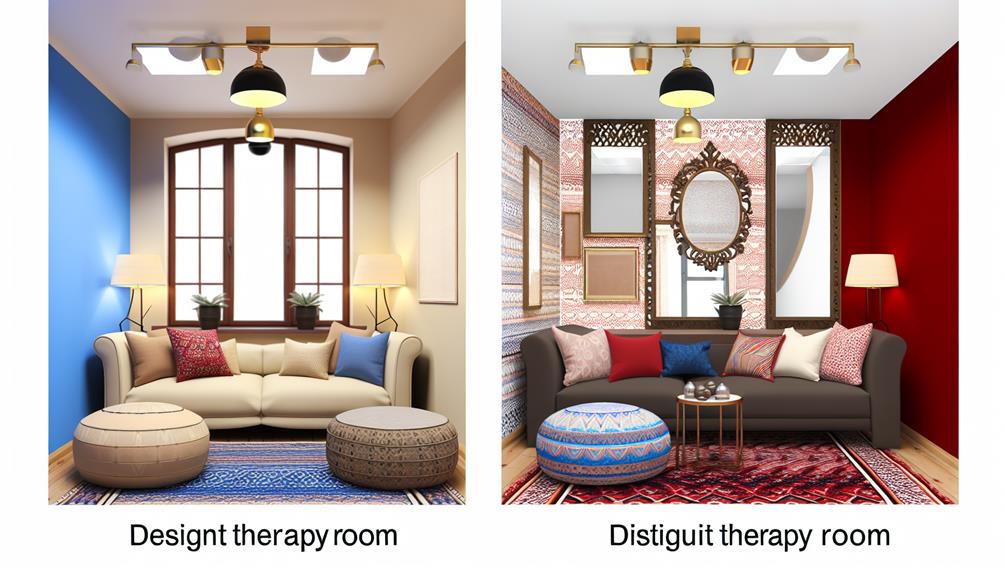Like a key unlocking a hidden door, gender-specific substance abuse programs offer a unique path towards recovery for individuals battling addiction. These programs, tailored specifically to the needs of men and women, provide a multitude of benefits that can significantly impact treatment outcomes and pave the way towards lasting sobriety.
From fostering a sense of safety and comfort to addressing gender-specific issues, these programs offer a specialized approach that goes beyond traditional treatment methods. But what exactly are these benefits, and how do they contribute to the journey of healing?
Let's explore further.
Improved Treatment Outcomes

When it comes to substance abuse treatment, gender-specific programs have been shown to significantly improve treatment outcomes. These programs are designed to address the unique needs and experiences of individuals based on their gender. By tailoring treatment to specific genders, personal growth and long-term recovery can be better facilitated.
In gender-specific programs, men and women are able to explore and process their addiction in a safe and supportive environment. This allows them to address underlying issues that may have contributed to their substance abuse, such as trauma or societal pressures. By separating the genders, individuals can focus on their personal journey without distractions or potential complications that may arise from romantic relationships.
Furthermore, gender-specific programs provide a sense of camaraderie and understanding among participants. Men and women can relate to and support each other through shared experiences, creating a strong sense of community. This enables individuals to build meaningful connections and develop the skills necessary for long-term recovery.
Enhanced Sense of Safety and Comfort
In gender-specific substance abuse programs, you can experience an enhanced sense of safety and comfort that fosters a healing environment for your recovery journey. These programs are designed to provide a space where you can feel understood, supported, and empowered. By participating in a program that's specifically tailored to your gender, you can feel a sense of belonging and connection with others who've had similar experiences. This sense of community can create a safe space where you can openly share your struggles, fears, and hopes.
By being surrounded by individuals who share your gender identity, you may feel more comfortable discussing sensitive topics and exploring the underlying issues that contribute to your substance abuse. This increased comfort can lead to a deeper level of engagement in therapy sessions and group discussions. You can openly express your thoughts and emotions without fear of judgment or misunderstanding.
In addition to feeling safe and comfortable, gender-specific programs often provide specialized treatment approaches that address the unique needs and challenges faced by individuals of your gender. This tailored approach can further enhance your sense of empowerment and increase your engagement in the recovery process.
Tailored Therapeutic Approaches

Gender-specific substance abuse programs offer tailored therapeutic approaches that cater to the unique needs and challenges faced by individuals of your gender, enhancing the effectiveness of your recovery journey. These programs understand that holistic healing requires personalized care, and they're designed to provide just that.
Here are some ways in which these tailored therapeutic approaches can benefit you:
- Individualized treatment plans: Gender-specific substance abuse programs take into account the specific experiences and issues that individuals of your gender may face. By tailoring the treatment plan to address these unique challenges, you can receive more targeted and effective care.
- Group therapy and support: These programs often provide group therapy sessions exclusively for individuals of your gender. This creates a safe and supportive space where you can connect with others who share similar experiences. Building connections and receiving support from peers who can relate to your struggles can be incredibly powerful in your recovery journey.
Through these tailored therapeutic approaches, gender-specific substance abuse programs aim to provide you with the personalized care you need to heal and thrive. Remember, you aren't alone in this journey, and by seeking help from a program that understands and caters to your specific needs, you're taking an important step towards a healthier and happier future.
Addressing Gender-Specific Issues
As you continue on your recovery journey in a gender-specific substance abuse program, it's important to address the unique issues that individuals of your gender may face, ensuring that your healing process is comprehensive and effective. Gender-specific challenges are real and can significantly impact the recovery process. By understanding and addressing these challenges, you can better meet your unique needs and achieve long-term sobriety.
In a gender-specific program, you have the opportunity to explore and work through issues that are specific to your gender. For example, women may have experienced trauma related to their gender, such as sexual assault or domestic violence, which can contribute to substance abuse. Men, on the other hand, may struggle with societal expectations of masculinity, which can lead to self-medication and addiction. By focusing on these specific issues, you can delve deeper into the root causes of your substance abuse and develop strategies to overcome them.
Moreover, in a gender-specific program, you'll be surrounded by individuals who've faced similar challenges. This creates a supportive and understanding environment where you can openly discuss your experiences without fear of judgment. Through group therapy and shared experiences, you can gain valuable insights and learn from others who've overcome similar obstacles.
Building Supportive Peer Networks

By connecting with others who are on a similar recovery journey, you can build supportive peer networks that foster understanding, encouragement, and lasting friendships. Through peer connection, you have the opportunity to surround yourself with individuals who truly understand the challenges you face and can provide the support you need to stay on track.
Here are two key benefits of building supportive peer networks:
- Emotional support: Recovery can be a rollercoaster of emotions, and having a network of peers who understand firsthand what you're going through can provide immense emotional support. Sharing your struggles, fears, and victories with others who've experienced similar situations can help you feel understood and validated. They can offer empathy, compassion, and encouragement, reminding you that you're not alone in your journey.
- Shared experiences: Building relationships with peers in recovery allows you to share experiences, insights, and coping strategies. Hearing others' stories of triumph and resilience can inspire and motivate you to keep pushing forward. You can learn from each other's mistakes and successes, gaining valuable insights and practical tips for overcoming challenges. These shared experiences create a sense of camaraderie and belonging, fostering a supportive environment where everyone can learn and grow together.








